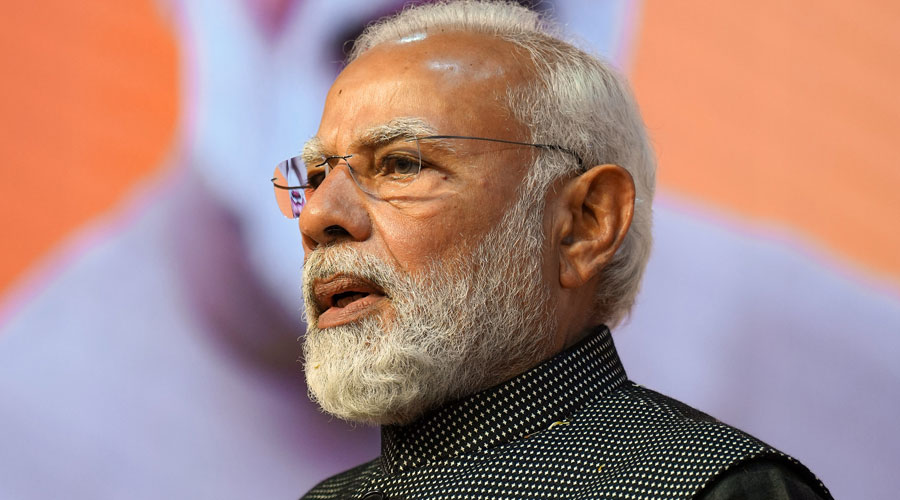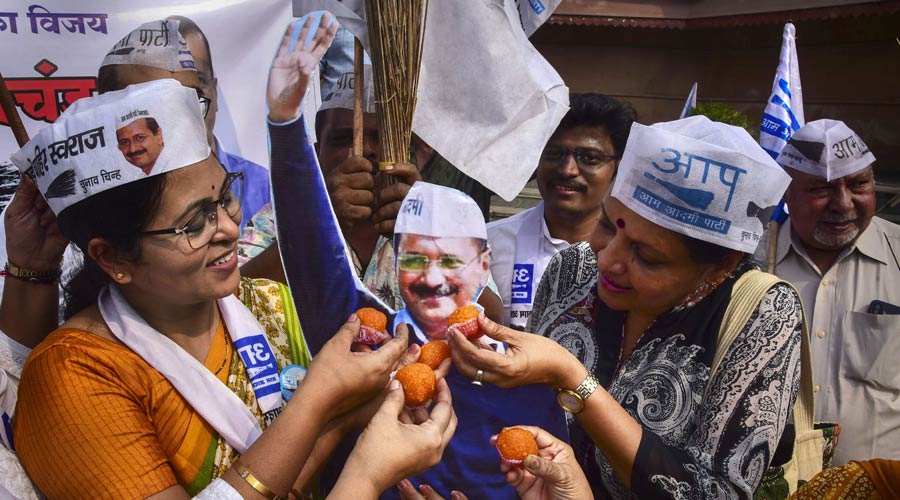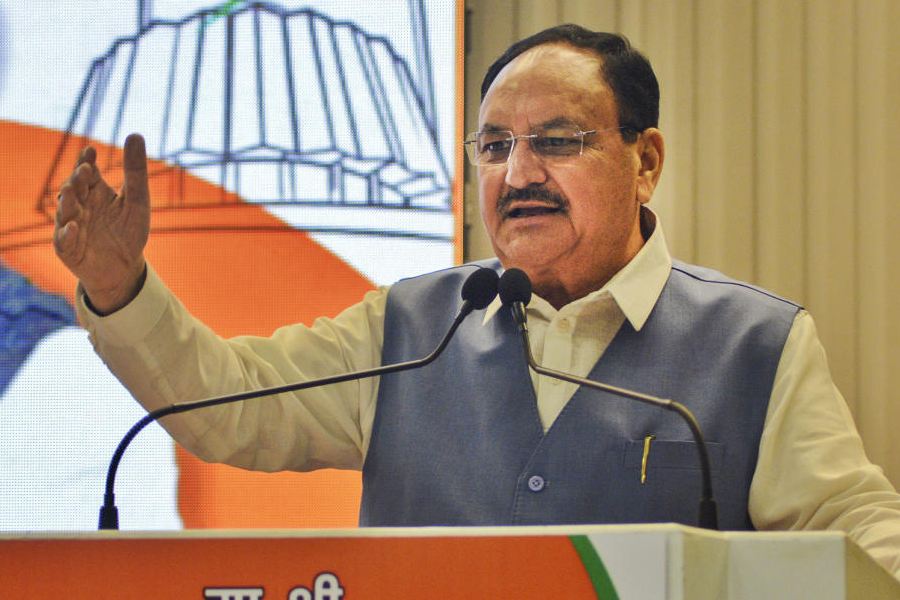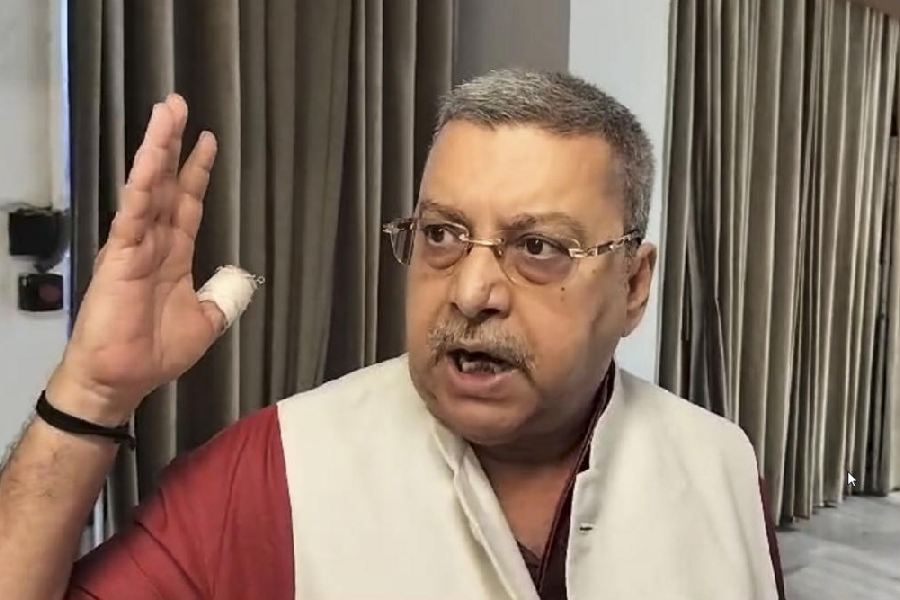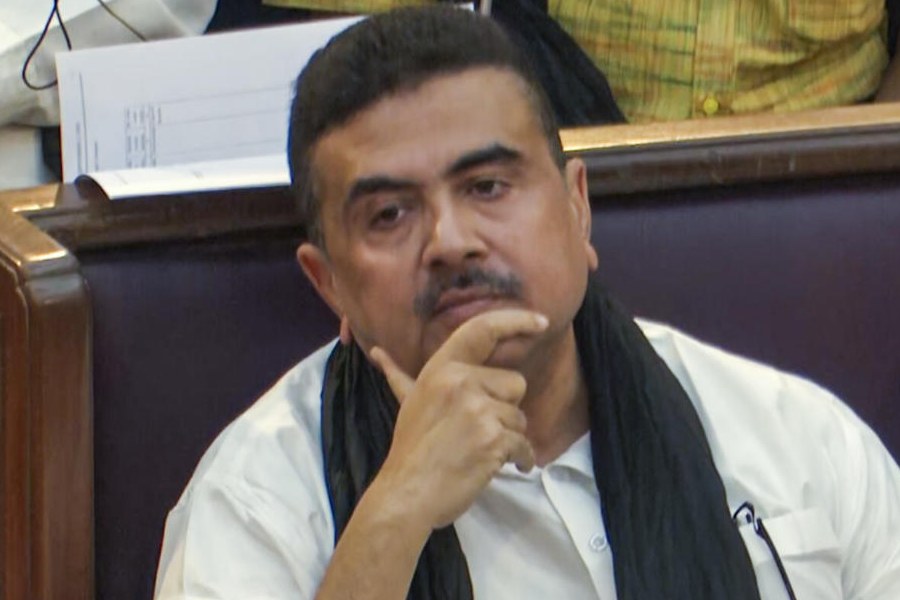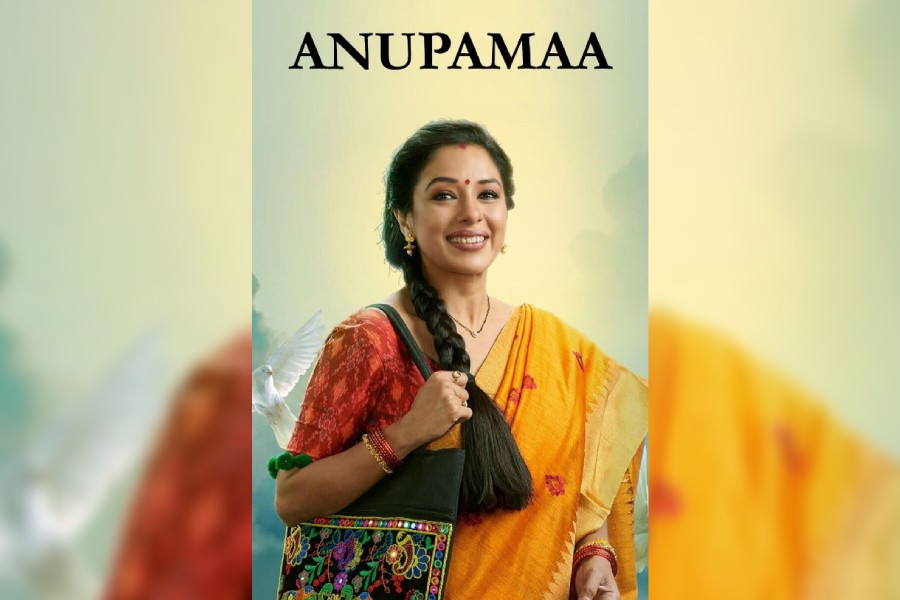“Muslim outreach” has become the latest buzzword for the BJP in poll-bound Karnataka, apparently following a nudge from Prime Minister Narendra Modi after months of minority-bashing over “love jihad”, hijabs and halal food.
While senior BJP leaders have been mouthing what in the Hindutva lexicon counts as placatory noises towards the minority community — such as “not all Muslims are bad” — police on Thursday removed Sangh parivar banners debarring Muslim vendors from a temple festival in Mangalore.
The banners were put up by parivar outfits near the Kadri Sri Manjunatha Temple to prohibit the entry of Muslim vendors during the January 15-21 festival. No complaint had been lodged against the banners — a regular feature of temple festivals in Karnataka in recent times.
E. Shujayatullah, state general secretary of the People’s Union of Civil Liberties, told The Telegraph: “The sudden love for Muslims is all because of the coming elections.”
Another activist said the BJP was trying to garner Muslim support in Bangalore, Mysore and the northern districts to offset the possible loss of votes from the Panchamashali sub-sect among Lingayats, whose demand for a higher percentage of OBC reservation remains unfulfilled.
On Wednesday, former chief minister B.S. Yediyurappa had told reporters in Shimoga that Modi had at the two-day BJP national executive in New Delhi, which ended on Tuesday, told the party to take Muslims into confidence.
“In any case, we have a good rapport with the Muslims whom we respect. We shall contact them more in the coming days in keeping with the Prime Minister’s advice,” he said.
Yediyurappa had been invited to a one-to-one meeting with Modi on the sidelines of the national executive, apparently to keep him in good humour and retain the support of his Lingayat community.
Maharashtra leader Devendra Fadnavis had on Tuesday told reporters that Modi had, at the national executive, emphasised the proximity of the 2024 general election and asked the party to reach out to all sections whether or not they voted for the BJP.
Questioned on Thursday about Yediyurappa’s comment, Karnataka higher education minister C.N. Ashwath Narayan told reporters: “We never said all Muslims are bad.”
He went on to praise Hyder Ali, 18th-centuryruler of Mysore and father of parivar bugbear Tipu Sultan.
“We never said Hyder Ali was a fanatic like his son, Tipu Sultan. Hyder Ali was a good ruler while his son was a fanatic who was against Kannada. In the same way, there are a lot of good Muslims,” Narayan said.
The minister, who is in charge of the BJP’s Vijaya Sankalpa Yatra — a voter outreach drive — said the party would “explain” its programmes to Muslims and “convince them to vote for us” in the upcoming Assembly and Lok Sabha elections.
Mangalore-based social activist Shabbir Ahmed, formerly with the Jamaat-e-Islami, said the BJP’s efforts to woo Muslims would not work in coastal Karnataka. “Any move to befriend Muslims will only prove counter-productive for the BJP in these parts. Muslims will anyway never vote for them after all the hate campaigns over the hijab, halal and love jihad,” he told this newspaper.
Coastal Karnataka has witnessed a spurt in Hindutva vigilantism against “love jihad” — an alleged Muslim conspiracy to romance and marry Hindu women to convert them —with Sangh parivar outfits demanding a specific law and a dedicated police wing against it.
Days before the latest efforts to court Muslims began, state BJP chief Nalin Kumar Kateel had told booth-level party workers to highlight “love jihad” rather than “small issues” like roads and sewerage, buttressing the charges of an attempt to polarise voters.
Karnataka’s Muslim voters — 13 per cent of an electorate of 5.05 crore — have traditionally supported the Congress and the Janata Dal Secular.
The community has in recent years felt increasingly marginalised amid a ban on the hijab in classrooms and Hindutva campaigns against halal food and mosque loudspeakers. However, the BJP is now desperate to win a slice of the Muslim vote at a time when factionalism in its state unit has become a worry for the national leadership.

